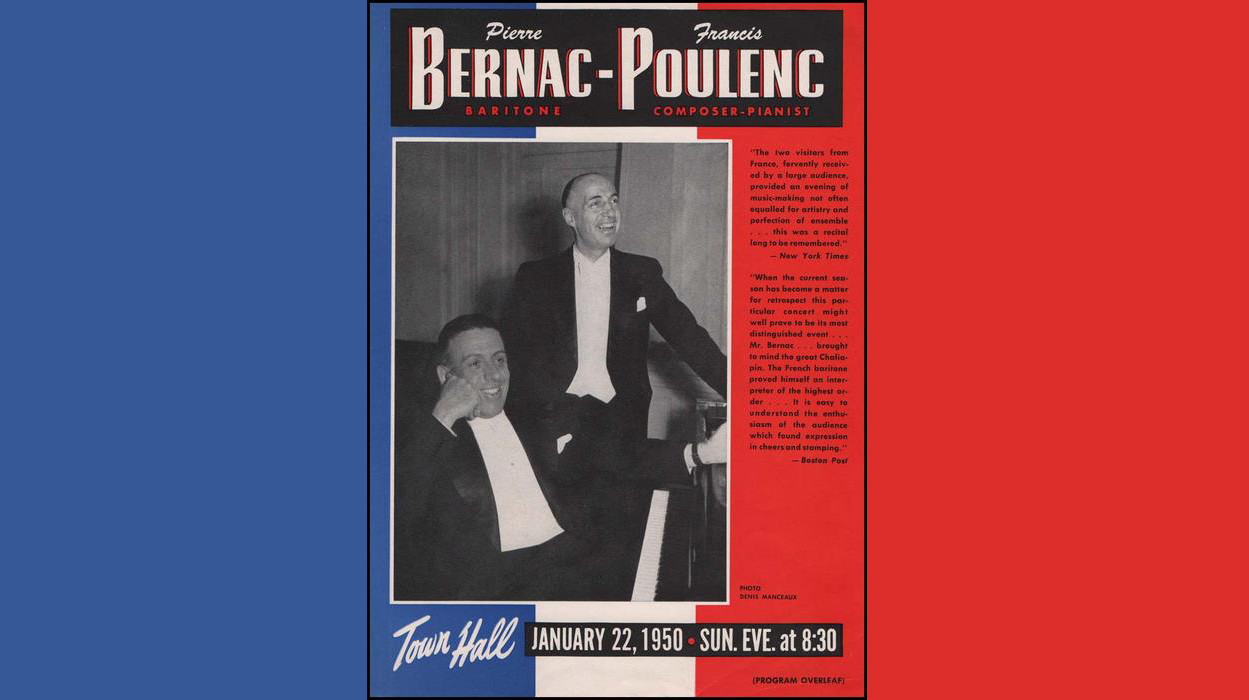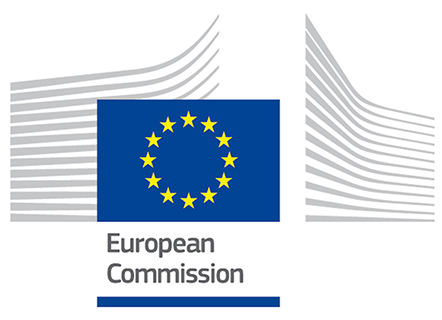Transnational Localism and Music after the two World Wars: the case of Francis Poulenc (2015-2017)
Taking Francis Poulenc as an example of a French composer who experienced war twice, this project looks at his creative responses to both wars.
It prioritises the musical and cultural significance of localised urban, suburban and rural places in shaping a distinctive musical and national identity, an identity that was recognised by his contemporaries as representing a generation; it scrutinises his international activities in pursuit of cultural and artistic cooperation, collaboration and exchange.

Researchers
Dr. Nicolas Southon, Marie Skłodowska-Curie Fellow (Keele University / Royal Northern College of Music)
Professor Barbara Kelly, Supervisor

Francis Poulenc belonged to the 1890s generation, a generation whose education was cut short by WWI, who often participated on the periphery of this first global conflict but experienced loss; they were the youth of the 1920s who helped to shape the image of the apparently carefree and secular Années folles, which masked the trauma, search for spirituality, quest for formal order and the realities of world financial crisis.
They were reaching middle age by the time of WWII and responded to the conflict through their professional activities and creative output. This generation was fully involved in the reconstruction of Europe after WWII.
This interdisciplinary project builds on the recent scholarship on Poulenc and his contemporaries. With some notable exceptions [Poulenc: Echo and Source. Selected Correspondence 1915–1963, translated and ed. Sidney Buckland, Gollancz, 1991; Keith W. Daniel, Francis Poulenc: His Artistic Development and Musical Life, UMI Research Press, 1982], Poulenc received little attention until the 1990s, when Myriam Chimènes published a substantial collection of his letters in the original French in 1999 [Poulenc: Correspondance, 1910-1963, ed. M. Chimènes, Fayard, 1994].
This was followed by further source work and critical reinterpretations around the time of the centenary in the late 1990s, e.g. Lucie Kayas’s edition of his radio shows [Poulenc, A bâtons rompus, écrits radiophoniques, ed. L. Kayas, Actes sud, 1999], Sidney Buckland and
Myriam Chimènes’s edited collection [S. Buckland and M. Chimènes eds., Music, Art and Literature, Ashgate, 1999], and Carl B. Schmidt’s catalogue and detailed biography [C. B. Schmidt, The Music of Francis Poulenc: A Catalogue, OUP, 1996; Entrancing Music, a Documented Biography of Francis Poulenc, Pendragon Press, 2001].
The next significant reappraisal came recently in anticipation of the 50th anniversary of the composer’s death, most notably the researcher’s collected and annotated writings of Poulenc [Poulenc, J’écris ce qui me chante, ed. Nicolas Southon, Fayard, 2011; English version: Articles and interviews, Notes from the heart, Ashgate, 2014] and Hervé Lacombe’s important biography [H. Lacombe, Francis Poulenc, Fayard, 2013]. While the former has made these fundamental sources available in French and English for the first time, the latter work blends primary source research and interpretation in fruitful ways. Its target audience is a broad musical readership, which means that it serves to stimulate more scholarly and analytical work on the composer.
To date, the focus has been on making primary sources available and studying Poulenc’s life, works and reputation. This project proposes to take a new approach, which addresses the significant gaps in this field. Adopting a mix of methodologies, it considers Poulenc and his generation in the cultural, political and geographical context of France and Europe from WWI to the post-WWII period. Far from the familiar narratives of Poulenc as a trivial fun-loving composer who rejected Austro-Germanic musical modernism, the study illuminates the important role he and his generation played in reflecting and shaping 20th-century artistic culture in response to two global conflicts.
While engaged in transnational encounters in his creative work and actions, Poulenc was central in forging a strong sense of more localised identity. It studies the places that were central to his artistic personality, focusing on his most significant urban space, Paris, and asking in what ways musical sound can reflect city landscapes. Using theory from cultural geography and musical analysis, the research considers the impact of particular Parisian neighbourhoods on his creative work.
The project also explores the significance of suburban places on his creativity, notably, Nogent-sur-Marne where he, like many Parisians, spent his youth, and absorbed its popular genres. The research asks if Poulenc’s ability to move socially and creatively from the music hall, street music, the fashionable avant-garde to high society gives his music a wide appeal, resulting in a personal identity that is both highly original and reflective of his places and his generation. Poulenc’s extensive religious repertoire appears to contradict his secular Parisian and suburban music.
The research examines transnational networks and collaborations between composers and other creative artists across Europe and North America. Taking Poulenc as a focus, it considers transnational cultural exchange through the media of performance and creative practice. Singled out as champion of the Resistance, Poulenc took on a symbolic national and international role after the Liberation of France. The research concentrates on the four state-sponsored tours he made throughout the United States and Canada between 1948 and 1960. These voyages have not been deeply studied before; it assesses the reception of Poulenc’s music in the USA in the context of artistic, cultural and political transatlantic exchange after World War II.
Main Activities
Study Day
4 July 2016, Keele University (Claus Moser Building)
« Creative Responses to Places »
Organising Committee: Barbara Kelly, Ceri Morgan, Nicolas Southon
9.30-9.45. Welcome (Ceri Morgan, Nicolas Southon, Barbara Kelly)
Chair: Barbara Kelly
9.45-10.45. Keynote Speaker: Daniel Grimley: “Hearing Landscapes Critically: Prospects and Reflections”
Chair: Ceri Morgan
11.00-11.30. Phil Jones: “How do places feel? Experiments with creative research methods”
11.30-12.00. Nicolas Southon: “Francis Poulenc’s Piano Concerto: ‘A picture of Paris’ for the American Audience”
12.00-12.30. Jennifer Campion: “The Deer”
Chair: Barbara Kelly
14.00-14.30. Scott Wilson: “Space in Electronic Music in Space: An Informal Introduction to a Convoluted Problem”
14.30-15.00. Beth Johnson: “Performing the North?: Gogglebox and Materiality.”
15.00-15.30. Lola San Martin: “The reconstruction of a certain soundscape in Pierre Mac Orlan’s interwar memories”
16.00-17.00 Literary Café, with Christopher Prendergast and Ceri Morgan
We acknowledge the support of the following organisations and individuals: The European Commission, Faculty Seedcorn Funding, Keele University, Yvonne Lomax, Tracey Wood, Faculty Research Office
International Symposium
3-4 July 2017, Royal Northern College of Music (Manchester)
French Musicians and the Conquest of North America: Musical Travels, Cultural Politics and Patronage
Programme committee: Nicolas Southon (Royal Northern College of Music/Keele University), Barbara Kelly (Royal Northern College of Music), Marie Duchêne-Thégarid (ANR HEMEF), Caroline Rae (University of Cardiff)
A century separates the autobiographical Offenbach in America, Notes of a Travelling Musician (1877) and the première of Henri Dutilleux’s Quartet, Ainsi la nuit (1977), which was commissioned by the Koussevitzky Foundation. It was a century during which French musicians travelled to the USA to conquer new publics, to disseminate their music, a century during which they received commissions from North American institutions and patrons, who were often Francophile. Some of their tours on American soil have become famous, such as Maurice Ravel’s in 1928, that of the Orchestre National twenty years later and the many trips Olivier Messiaen undertook in the second half of the century.
The focus of this Symposium is to explore the diverse aspects of the relationship that French musicians had with North America in the 19th and 20th centuries. What did this country represent to French musicians at the time of internationalisation of careers and diffusion of works? To what extent did composers consolidate their reputations by travelling to the USA and making their music better known? What networks did they tap into and what strategies did they employ to make an impression in the New World, with the support of particular cultural policies?
We welcome papers concerning composers who have toured or visited North America, as well as performers, conductors and ensembles. We are also interested in institutions, for example, the major role of the Association française d’action artistique (initially named the Association française d’expansion et d’échanges artistiques), the government organisation which largely subsidised the travel of French musicians to the United States; or the activities of American institutions, performers and patrons.
Papers can be given in either French or English.
We are delighted to announce that Professor Philippe Cathé (Université Paris-Sorbonne) will be the Keynote Speaker.

